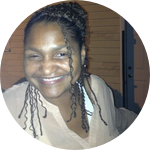About This Project
Male survival sex workers are a marginalized population with high rates of mental and physical illness. These men are subject to multiple layers of stigma (e.g. HIV, sex work, mental illness) that impact access to quality healthcare. They report negative healthcare experiences that can alter long-term trajectories of care. This research seeks to understand health needs of male survival sex workers and develop a brief in-service training for health professionals.
Ask the Scientists
Join The DiscussionWhat is the context of this research?
Our research group partnered on a PCORI-funded community-based participatory research (CBPR) project to explore healthcare barriers for African American male sex workers in Chicago. The community survey conducted by Emmaus Ministries found that 95% of survival sex workers experienced a mental illness, over 60% had chronic illness or injury, and 30% reported avoiding care because of what others might think of them. Nearly 40% reported negative experiences with healthcare, feeling that healthcare providers failed to adequately listen to their concerns and take them seriously. Thus, we would like to further explore how male survival sex workers can be engaged in mental and physical health care (i.e.- integrated care).
What is the significance of this project?
Sex work is termed “survival” when individuals are selling sexual services to fulfill basic needs. Sex work is a stigmatized profession and many sex workers attempt to hide their occupation from others (Lazarus et al., 2012), including healthcare providers (Cohan et al., 2006). Research specific to male survival sex work is very limited,however these men also have a high prevalence of mental illness, HIV infection, and other sexually transmitted infections (Baral et al., 2015, Cohan et al., 2006). A better understanding of how these men are treated by the healthcare system, how they can be engaged in treatment, and how physical and mental health care can be better coordinated will be essential to serving this population.
What are the goals of the project?
We plan to conduct focus groups with male survival sex workers (n=25) in the Chicago area. The focus groups will provide additional information about how treatment of these individuals can be improved and how they can be better engaged in integrated care settings that will meet both physical and mental health needs. The focus group data will be used to develop a 1-2 hour in-service curriculum for healthcare providers who are likely to serve survival sex workers. As part of this project, we will conduct a small pilot test of the training to determine feasibility and acceptability of the training.
This training will be facilitated by an individual who has past experiences with survival sex work.
Budget
Twenty-five male survival sex workers from Chicago will be paid $30 each to participate in focus group on their health care needs. A student research assistant will be paid a $400 stipend for transcribing and coding the focus group data. Scott Nobel, a community member with experience providing outreach to male survival sex workers, will partner with the research team to recruit participants, help develop the training curriculum, and facilitate the pilot-testing. He will be paid $1,000 for his time on the project.
Endorsed by
Meet the Team
Lindsay Sheehan
Lindsay Sheehan, PhD, is Senior Research Associate at the Chicago Health Disparities Center at the Illinois Institute of Technology. She was project manager for a recently completed PCORI-funded Eugene Washington Engagement award on community-based participatory research (CBPR) for African Americans with serious mental illness. On this project, Dr. Sheehan worked with a community advisory board to develop a CBPR curriculum and train community members in CBPR. Dr. Sheehan has also used the CBPR approach to study the stigma of suicide and has contributed to several funded CBPR projects on peer navigator programs for individuals with psychiatric disabilities.
Sonya Ballentine
Sonya Ballentine has lived experience of mental illness, physical disability and homelessness. She first became involved in research through an NIH-funded pilot project on homeless African American with serious mental illness. She has since worked on several other research grants, including a PCORI award to develop a community-based participatory research (CBPR) curriculum for African Americans with serious mental illness and a NIH grant to design and test a peer navigator program.
Scott Noble
Scott has worked in advocacy and care for men in sex work for the past seven years. He regularly volunteers at numerous organizations as a certified HIV tester and counselor. He has led classes about HIV prevention and assisted with past research projects as co-author and data collector.
Lab Notes
Nothing posted yet.
Additional Information
We ultimately hope to test the training on a larger scale and would expect the training to result in increased knowledge of male survival sex worker needs, more positive attitudes towards this population, greater intentions to implement engagement strategies.
Project Backers
- 11Backers
- 39%Funded
- $910Total Donations
- $82.73Average Donation





